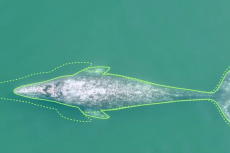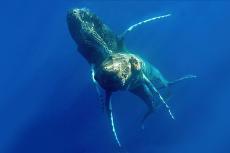Sharks: Loss of Diversity Through Time
Sharks face unprecedented threats that jeopardize their essential roles within marine ecosystems. By examining the fossil record, looking for key dental traits linked to behaviour and their ecological roles, researchers have found that sharks once exhibited high functional diversity. However, a significant decline in this diversity began around 30 million years ago and as a result, sharks are increasingly vulnerable to environmental changes.
Sharks first appeared in the fossil record about the same time that plants covered the land, nearly half a billion years ago. Evolution has made them so perfect that they have retained their main characteristics over all of this abyss of time. But despite their formidable lineage, modern sharks face unprecedented threats and challenges that endanger their diverse roles within ecosystems.
The fossil record
In a pioneering study, researchers Jack A. Cooper and Catalina Pimiento delved into the fossil record of sharks, examining over 9,000 teeth from 537 different species. These teeth, meticulously gathered from museum collections and scientific literature, serve as windows into the past, revealing how shark functional diversity has evolved over the last 66 million years.
They focused on six key dental characteristics linked to shark behaviours and roles in ecosystems. They found that during much of the Cenozoic era (from the Palaeocene to the Miocene), sharks displayed remarkably high functional diversity. This period, spanning approximately 60 million years, saw sharks occupying between 66% to 87% of available functional roles, showcasing a robust ecological presence.
A sudden decline in shark diversity
However, the findings also uncovered a critical turning point around 30 million years ago during the Oligocene epoch. At this time, there was a significant decline in the redundancy of shark functional traits, making their diversity increasingly vulnerable to environmental changes and extinction risks.
From the late Miocene onward, approximately 10 million years ago, there was a stark decline in shark functional diversity, with a loss of 44% of their richness by recent times. Extinct shark species, which once occupied a wide range of ecological niches, disproportionately contributed to the overall functional diversity of the Cenozoic era.
Troubling consequences
Lead researcher Cooper emphasized that these losses in functional diversity over the past 10 million years are concerning, especially given the current pressures from human activities. Anthropogenic impacts such as overfishing, habitat destruction, and climate change pose new threats to the remaining shark populations, further diminishing their ecological roles compared to their thriving past.
The research underscores the urgent need to understand and conserve shark diversity, not only for their intrinsic value, but also for the health and resilience of marine ecosystems worldwide. As efforts continue to mitigate human impacts on shark populations, scientists hope to preserve what remains of these ancient and vital ocean predators for future generations, and thus help ensure the resilience of marine ecosystems for future generations.


























